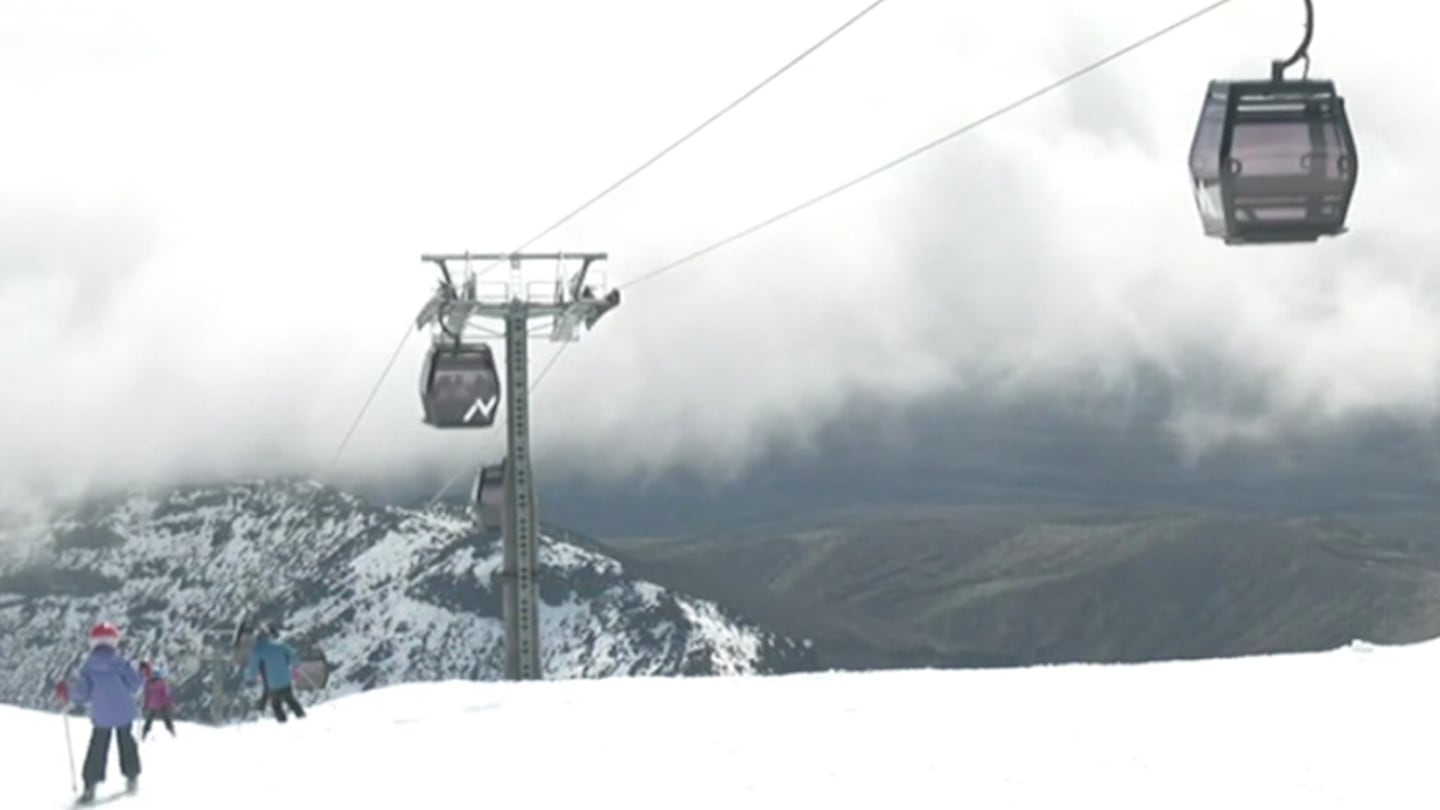Conservation Minister Tama Potaka earlier this month agreed to give Pure Turoa Ltd a 10-year concession to operate the Tūroa ski field but local iwi are still cross they have been frozen out of decisions over the mountain’s future.
The iwi and hapū with ancestral ties to the whenua where the ski field is located are Ngāti Tūwharetoa, Ngāti Hāua, Ngāti Rangi, and Te Korowai o Te Wainuiaru.
At one stage Ngāti Tūwharetoa considered buying the company but on looking at its books withdrew and opposed any ski field activity on the maunga.
The iwi all have different concerns but most relate to Treaty settlement discussions over the maunga, which most see as sacred.
Several oppose any use of their sacred mountain though others would allow skiing under environmentally careful conditions.
Iwi takes tāngata tiaki role seriously
Potaka said two weeks ago, in an attempt to reassure Māori, that the 10-year concession allowed for outstanding Treaty settlement negotiations to unfold and gave “greater protection to iwi and hapū interests and responsibilities, including the future park negotiations, whilst ensuring the continued operation of the ski-field”.
He also said the concession mean the public could continue to enjoy the recreational benefits available in the Tongariro National Park for years to come.
But the company running a ski operation on the other side of Ruapehu, Ruapehu Alplne Lifts, is still in danger of an avalanche because the government gave it a $7 million handout last month but said it would be the last. That means its receivers will need to find a buyer, something they have failed to do so far.
The iwi made submissions before the concession was granted and one, Ngā Waihua o Paerangi Trust (formerly known as Ngāti Rangi Trust) agreed to show Te Ao Māori News its submission.
Trust pou ārihi Helen Leahy says Ngāti Rangi is one of the tāngata whenua of the region and takes seriously its role as tāngata tiaki over the natural world.
Its involvement was required on all consent and concession applications within its rohe, “and in all cases, we wish for early and honest engagement with applicants to ensure meaningful collaboration towards a common goal”.
Never consulted
The iwi has emphasised the importance of its stance since the establishment of the Tūroa ski-field in 1978 that was enabled by the Crown through a licence it granted to the then operating company.
Ngāti Rangi says in its submission to the Department of Conservation that it was excluded from this process when it initially took place and that its position on the skifield has always been one of opposition.
“Ngāti Rangi was never consulted regarding the construction of the ski-field on the sacred slopes of Ruapehu.
“Our preference is that Ruapehu was left untouched and he be returned to his pristine state. Ruapehu as our ancestral mountain is deemed tapu to Ngāti Rangi.”
The iwi says it believes due to this level of sacredness, Ngāti Rangi has a responsibility to protect the mana and tapu of the maunga and continue to oppose development on the skifield.
“To protect Ruapehu’s mana and tapu state, Ngāti Rangi do not support and have never supported, development on Ruapehu.”
Ngāti Rangi principles
A signed deed of settlement, Rukutia te Mana, was signed by Ngāti Rangi on March, 10, 2018, which that allowed potential to unfold in their interest within the area.
“Te Waiū-o-te-ika Framework sets out four principles:
- Ko te Kāhui Maunga te mātāpuna o te ora:
- The sacred mountain clan, the source of Te Waiū-o-te-Ika, the source of life.
- He wai-a-riki-rangi, he wai-ariki-nuku, tuku iho, tuku iho:
- An interconnected whole; a river revered and valued from generation down to generation.
- Ko ngā wai tiehu ki ngā wai riki, tuku iho ki tai hei waiū, hei wai tōtā e:
- Living, nurturing waters, providing potency to the land and its people from source to tributary to the ocean.
- Kia hua mai ngā kōrero o ngā wai, kia hua mai te wai ora e:
- The latent potential of Te Waiū-o-te-Ika, the latent potential of its hapū and iwi.”
The iwi says these principles guide it in its decisions and that the proposed activities of Pure Tūroa would impact on Te Waiū-o-te-ika.
Wai and awa health
“This comprises the entire catchment of the Whangaehu River and all its tributaries. The origin of this waterway is Te Wai a Moe, the Crater Lake of our ancestral maunga, Koro Ruapehu. This is our most significant awa culturally and spiritually, due to its origin and the different qualities it provides for our people; wai ora, wai tapu, wai mouri, wai mana and wai mate.
“Te Waiū-o-Te-Ika upholds the mana of the statutory recognition as a catchment-based approach, an indivisible whole. The upper reaches of the Mangawhero river flow through the Tūroa ski field.”
Ngāti Rangi says the special significance of Te Waiū-o-Te-Ika and in keeping with Te Mana o te Wai framework is that its first priority is the health of the wai (water) and the awa (river).
“Our second priority is human health and drinking water. Cultivated food production is our third priority. Recreational opportunities such as skiing have low priority. This extends also to the creation of snow using snow-making technology.”
Acknowledges ‘economic contribution’
Ngāti Rangi says it would prefer to see no increase in the environmental footprint on its maunga overall.
However, “nevertheless, we acknowledge the economic contribution Ruapehu Alpine Lifts, and now Pure Turoa Ltd are making to the region, and we are prepared to work towards a resolution, provided sufficient mitigation and safeguards to our maunga and awa are met.”
Meanwhile Pure Turoa has told other media it has removed one chair lift because of the small number of skiers using it and that after 10 years the main chair lift would be replaced with something considerably better. That assumes the concession is again granted to it.



